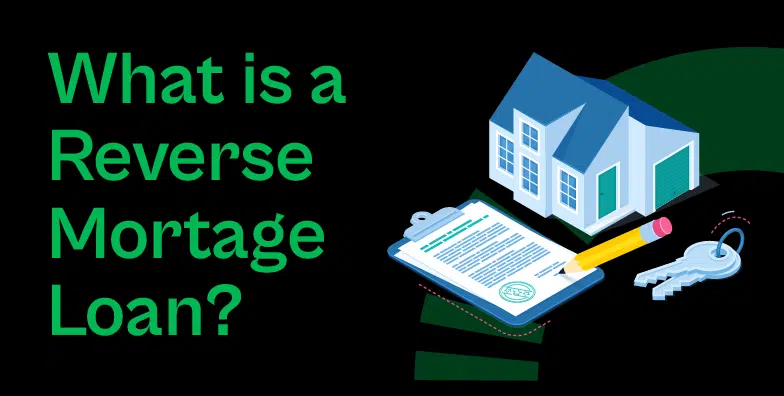Retirement can be tricky, especially when managing finances. Reverse mortgages help seniors keep their homes and increase their income. By using the value of their homes, retirees get money without monthly payments. This lets them live a more comfortable retirement.
These loans are supported by the federal government. This means they include protections and rules that help homeowners. They can use their home’s value and still leave something for their heirs. Also, the money is tax-free, giving them new ways to handle their finances.
Key Takeaways
- Reverse mortgages provide older homeowners with access to their home equity, enabling them to supplement their retirement income without the burden of monthly mortgage payments.
- These government-backed loans offer protections such as non-recourse loans and mandatory counseling, ensuring borrowers are informed and empowered.
- Tapping into home equity through a reverse mortgage can help retirees maintain homeownership, diversify their assets, and explore investment opportunities.
- The tax-free nature of reverse mortgage funds gives retirees greater flexibility in managing their finances and preserving their heirs’ inheritance.
- Reverse mortgages can be a valuable financial tool for older adults seeking to achieve greater financial stability and security in their retirement years.
Understanding Reverse Mortgages
Reverse mortgages are for people 62 and older. They let you turn your home equity into cash instead of paying a monthly loan. This is a great aid for retirement planning and boosting your retirement funds.
What is a Reverse Mortgage?
It’s a unique loan for seniors to get cash from their home’s equity. You pay it back when you leave your home or pass away. This option offers financial flexibility to handle costs or keep on owning your home.
Eligibility Criteria
To be eligible, you should be 62 or older and have your home fully or mostly owned. Living in your home full-time is necessary. You also need to keep up with taxes and insurance.
Benefits of Tapping into Home Equity
- Boost retirement income and meet financial needs
- Keep homeownership and avoid selling
- Gain financial flexibility for spending
Through a reverse mortgage, seniors can feel more financially secure while living where they love. They don’t have to worry about paying a home loan every month.
| Key Criteria | Minimum Requirements |
|---|---|
| Age | 62 years or older |
| Home Ownership | Own home outright or have a low mortgage balance |
| Residency | Primary residence |
| Taxes and Insurance | Continued payment of property taxes and homeowner’s insurance |
Reverse mortgages open a unique way for senior citizens to access funds and boost their retirement planning. Knowing about reverse mortgage definition and eligibility criteria helps seniors consider this path for more financial strength and freedom.
Types of Reverse Mortgages

The Home Equity Conversion Mortgage (HECM) is the most common kind of reverse mortgage. It’s insured by the Federal Housing Administration (FHA). Homeowners who are 62 or older can use their home’s equity with a lump sum, monthly payments, or a line of credit. There are two types within HECMs: fixed-rate and adjustable-rate.
Home Equity Conversion Mortgages (HECMs)
HECMs help older homeowners use their home equity. They are backed by the government and let people borrow against their home’s value. You don’t have to make monthly payments. There are payout choices like getting a lump sum, regular payments, or a credit line.
Fixed-Rate HECM
A fixed-rate HECM keeps the loan’s interest rate the same. This could be good for a steady income in retirement. Homeowners often get their money in one lump sum. It’s a stable financial option for them.
Adjustable-Rate HECM
The interest rate in an adjustable-rate HECM might change. This can be better when rates are low. Borrowers can get money as needed, through a credit line, regular payments, or a mix. But, the interest rate might go up.
Proprietary Reverse Mortgages
There are also jumbo reverse mortgages for higher-valued homes. They are not backed by the FHA and have fewer rules. These can be good for homes worth more than what HECMs allow. It’s always important for homeowners to really think about their finances. They should get advice from experts before choosing a reverse mortgage.
| Type of Reverse Mortgage | Key Features | Advantages | Disadvantages |
|---|---|---|---|
| HECM (Fixed-Rate) |
|
|
|
| HECM (Adjustable-Rate) |
|
|
|
| Proprietary Reverse Mortgage |
|
|
|
Understanding the different reverse mortgage types helps homeowners. They can choose what works best for their financial plans and needs.
Benefits of Reverse Mortgage

Reverse mortgages are great for retirees wanting financial security and freedom. They can use the equity in their homes to add to their retirement income. This way, they have more money for bills, medical costs, or sudden needs without using up all their savings.
Renting their property to get equity isn’t needed with a reverse mortgage. They can stay in their house, keeping the comfort of their familiar surroundings. This is especially meaningful for those who feel deeply connected to their homes.
Reverse mortgages also offer a lot of ways to use the home equity. Homeowners can get a lump sum, monthly payments, or a credit line. This choice means they can pick what suits their financial plans best. It helps the funds work for them in the best way.
“Reverse mortgages can be a valuable tool for seniors looking to supplement their retirement income, maintain their independence, and enjoy the flexibility of accessing their home equity on their own terms.”
Summing up, reverse mortgages are a good choice for retirees looking to secure their finances, stay in their homes, and have more flexible access to their equity. It’s important to think about their own situation and what this decision means for the future. This way, they can decide if a reverse mortgage aligns with their retirement plans.
Important Factors to Consider

When looking into a reverse mortgage, it’s key to know its critical factors. This includes interest accrual, loan repayment, and its effect on inheritance. It’s necessary to think carefully about these.
Interest Accrual and Loan Repayment
Understanding how interest and repayment work is vital. In a reverse mortgage, interest is added to the loan balance, not paid monthly. So, the debt gets bigger over time. The full loan must be paid back when the last borrower leaves the house, often within six months.
Impact on Inheritance
A reverse mortgage can affect what heirs might inherit. But, there’s often still home equity after the loan is settled. By thinking it over, people can choose to use their home’s equity and also leave something for their family.
Counseling and Education Requirements
Before getting a reverse mortgage, counseling is a must. This step ensures that borrowers truly grasp what they’re getting into. It aims to help them make choices that support their financial plans.
“Reverse mortgages offer significant benefits, but it’s crucial to carefully consider the interest accrual, repayment process, and impact on inheritance. The required counseling helps borrowers make informed decisions.”
When Is a Reverse Mortgage Not a Good Option?

Reverse mortgages can help many retirees, but they’re not right for everyone. It’s key to look at the downsides to decide if it fits your goals.
First, think about what you’ll do with the house. If it’s for sale soon, a reverse mortgage might not help much. Costs could reduce the money you get. Also, if you won’t need the home later for health reasons, it may not be wise.
Second, think about how it affects your family. If a child lives in the house and can’t pay after you’re gone, they might have troubles. That’s when a reverse mortgage could harm your family’s financial security and living arrangements.
Potential Drawbacks of Reverse Mortgages
- Homeowner plans to sell the property in the near future
- The home does not align with the homeowner’s long-term physical needs
- An adult child resides in the home and cannot afford to refinance after the homeowner’s passing
Taking your time to consider is essential. Make sure to check with a reverse mortgage expert or a financial planner. They can help you see if this strategy fits well with your financial plans and goals.
“The choice to get a reverse mortgage is very big. You must think about how it affects you and your family’s money and future.”
The Application Process for Reverse Mortgages
The reverse mortgage application process might look tough at first. Yet, with proper help, it can become simple. Your first job is to check if you can get a reverse mortgage. You must be 62 or older and fully own your home or have a lot of equity.
After seeing you’re eligible, the key thing is the counseling session. This session, run by a HUD-approved counselor, makes sure you get the offer completely. They help you see the costs, what it means exactly, and answer any questions you might have.
- Determine Eligibility
- Complete Counseling Session
- Submit Application
- Undergo Appraisal and Underwriting
Once you finish with counseling, you can apply for a reverse mortgage. You’ll need to give some personal and financial info, like age, home ownership proof, and where your money comes from. Then, the lender checks your home’s value and financial health to see if you meet the reverse mortgage requirements.
“The key to a successful reverse mortgage application is working closely with an experienced lender who can guide you through each step and ensure you understand the process fully.”
While going through the application, you’ll work a lot with your reverse mortgage specialist. They will offer a lot of help. By knowing the steps and what’s needed, homeowners can go for a reverse mortgage with confidence. This helps them use their home’s value to better their financial life.
Tax-Free Funds and Asset Preservation Strategies

A reverse mortgage offers funds that are tax-free. This is key for retirees who want extra income. They don’t have to worry about paying extra taxes, which helps keep their finances strong during retirement. Also, by using a reverse mortgage, homeowners can mix up their investments. This means they can lower the risk of putting all their money in one place.
Utilizing Reverse Mortgage Instead of Traditional Holdings
With a reverse mortgage, homeowners can use their home’s equity without selling off their other investments. This is great if they want to keep their stocks, bonds, and other traditional assets for later, like for growing wealth or passing down. Using a reverse mortgage this way helps retirees boost their income. At the same time, they keep a varied investment plan.
Safeguarding Heirs with Insurance Products
Some reverse mortgage users add insurance to keep their inheritance safe. They might get term life insurance or policies that cover both partners. These insurance plans can reduce the loan’s impact on what’s left for their heirs when they’re gone.
“Utilizing a reverse mortgage can be a powerful tool for retirees looking to enhance their financial stability and protect their assets for the future.”
Understanding the benefits of tax-free reverse mortgage funds and how to protect their legacy, retirees can manage their assets wisely. This approach fits well with their financial dreams for the future.
Reverse Mortgage for Financial Stability

A reverse mortgage can help seniors stay financially stable and find new ways to invest. It stops them from making monthly mortgage payments. This gives them more freedom and control over their money.
Eliminating Monthly Mortgage Payments
Getting rid of monthly mortgage payments is a huge plus of a reverse mortgage. It’s a big help for retirees with a fixed income. They can use the saved money for important costs or fun things. They feel more financially secure and free without a mortgage to pay.
Investment Opportunities
The financial freedom from a reverse mortgage opens up investment chances. Seniors could put their money into things like rental homes. This adds to their retirement income and helps their financial health in the long run.
Using their home’s equity wisely, retirees can make their investment mix stronger. This could lead to a better financial life down the road. Reverse mortgages offer reverse mortgage investment options for more possibilites and reverse mortgage financial freedom. By using a reverse mortgage the right way, seniors can have better financial security. They can try new investments and make their retirement years better.
Also Read : Crowdfunding Loan: How They Work And What You Need To Know
Conclusion
Reverse mortgages are a great option for retirees wanting to boost their finances. They can contribute to retirement income and let homeowners keep their homes. Seniors get the chance to use their home’s equity without moving. They also aren’t taxed on this money since it’s a loan. However, there are important things to keep in mind. For example, the amount owed will grow over time. This can impact how much is left for family when the homeowner passes away.
It’s essential to know the benefits and what to think about with reverse mortgages. They can stop monthly mortgage payments and aid in exploring new investments. Even more, they bring peace of mind for retirees. Deciding on reverse mortgages means understanding both the good and the challenges. Seniors should get advice and learn before making any choices. This knowledge helps them feel sure about their future.
In the end, reverse mortgages offer a way to bolster finances and living standards for retirees. With the help of experts, seniors can pick the right plan for them. They can enjoy retirement without worrying about money.
FAQs
Q: How does a reverse mortgage work?
A: A reverse mortgage allows homeowners aged 62 and older to borrow against the equity in their homes. Instead of making monthly payments to the lender, the lender makes payments to the homeowner, which can be received as a lump sum, a line of credit, or a series of monthly payments.
Q: What are the eligibility requirements for a reverse mortgage?
A: To qualify for a reverse mortgage, you must be at least 62 years old, own your home outright or have a low mortgage balance that can be paid off with the proceeds from the reverse mortgage, and live in the home as your primary residence.
Q: What is a HECM reverse mortgage?
A: HECM stands for Home Equity Conversion Mortgage, which is a type of reverse mortgage that is insured by the Federal Housing Administration (FHA). It is the most popular type of reverse mortgage and offers various payment options and protections for borrowers and department of housing and urban.
Q: What are the different types of reverse mortgage loans available?
A: The most common types of reverse mortgage loans are HECM reverse mortgages, single-purpose reverse mortgages, and proprietary reverse mortgages offered by private lenders. Each type has unique features and eligibility requirements.
Q: How can one qualify for a reverse mortgage?
A: To qualify for a reverse mortgage, you need to meet the age requirement, have sufficient equity in your home, and fulfill other eligibility criteria set by the lender sell the home. It is also mandatory to undergo a counseling session with a HUD-approved reverse mortgage counselor.
Q: What can the proceeds from a reverse mortgage be used for?
A: The funds received from a reverse mortgage lender can be used for various purposes, such as supplementing retirement income, covering healthcare expenses, making home improvements, paying off existing debts, or simply enhancing your quality of life.
Q: What are some alternatives to taking out a reverse mortgage?
A: Alternatives to a reverse mortgage include downsizing to a smaller home, using home equity lines of credit (HELOCs), exploring government assistance programs, or considering a traditional mortgage refinancing. It’s essential to explore all options before making a decision.





